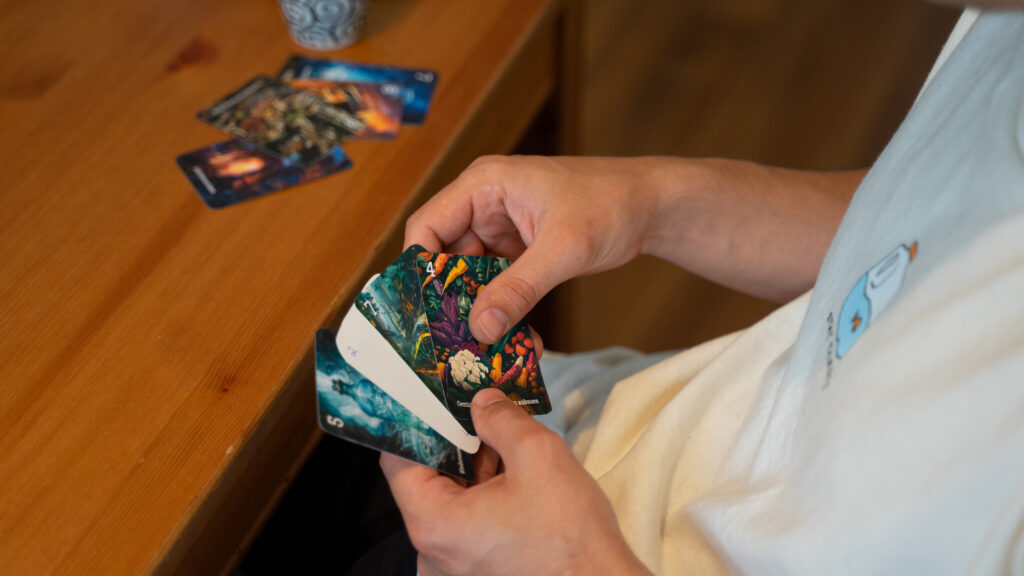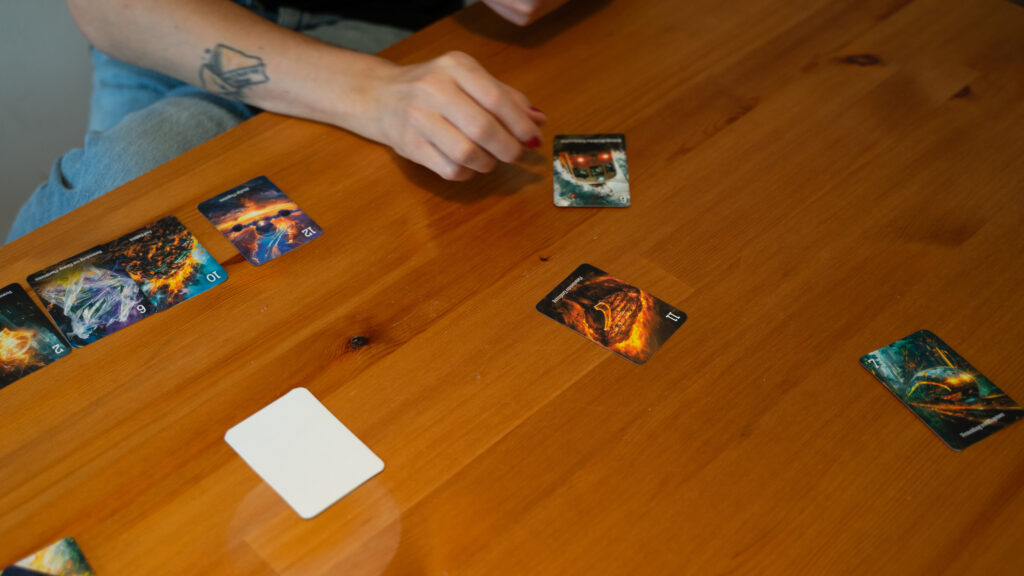In my quest to create an engaging and educational card game based on the classic Game of Pure Strategy (GOPS), I recently conducted a usability test. This was the first time I saw the game mechanics in action after coming up with the idea. Two adult friends volunteered to play, even though the game is intended for children. Here’s what happened and what I learned.
What Didn’t Work
- Card Placement Issue: It became apparent that players couldn’t always place a sustainable action card directly on the corresponding unsustainable action. This raised questions about whether the core concept of the game would hold up.
- Text Size Problem: The text on the cards was mentioned to be a little small. It was fine to read but it didn’t immediately jump out at you, so it’s clear that for kids, it would be even more difficult.
- Typo Trouble: There was a typo on one of the cards: „Vermeidung von FlugEisen.“ Oops! Proofreading is definitely needed.
Observations During Play
- Engagement: Michi and Max both read through the cards and found the concept intriguing. Michi especially enjoyed matching sustainable actions to unsustainable ones when it worked out.
- Strategic Thinking: As they played, both started to think more strategically. Michi, who won the game, mentioned it felt satisfying to win especially when the actions matched logically.
- Enjoyment Level: Initially, there was concern about the game becoming repetitive, but it held their interest through several rounds. Michi commented that it was fun and had the potential to be a “mind game”, as the more rounds you play, the more you reconsider the tactics of the other player.



Positive Takeaways
- Cool Concept: Both players found the game cool and fun. They liked the idea of learning about sustainability through play.
- Subtle Learning: They felt that if the goal was to teach sustainability subtly, the game did a good job. The information was absorbed incidentally while playing.
- Replayability: Despite initial thoughts, the game remained engaging through multiple rounds. They even found a new layer of challenge the second time around.
Ideas for Improvement
- Game Mechanics: Michi suggested introducing mechanics similar to the card game Wizard, perhaps with trump cards to add depth.
- More Information: Adding more information to the cards without overwhelming the player could enhance educational value.
- Quartet Format: Converting the game into a quartet-style game was another suggestion to consider.
Overall, the feedback was incredibly valuable. While there are some kinks to iron out—like making the text more readable and ensuring the game’s mechanics are smooth—the core idea of combining fun with learning about sustainability was well-received. Of course to create a game that should be a hit with kids, I would also need to test it with the desired target group. But with a few tweaks, it might turn out as game, that could teach them important lessons while they play.